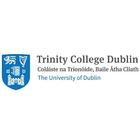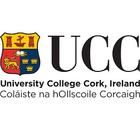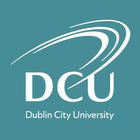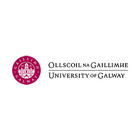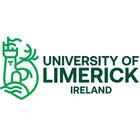- News and articles
- Events
- Find usIDP AustraliaIDP BahrainIDP BangladeshIDP CambodiaIDP CanadaIDP ChinaIDP EgyptIDP GhanaIDP Hong KongIDP IndiaIDP IndonesiaIDP IranIDP JordanIDP KenyaIDP KoreaIDP KuwaitIDP LebanonIDP MalaysiaIDP MauritiusIDP Middle EastIDP New ZealandIDP NigeriaIDP OmanIDP PakistanIDP PhilippinesIDP Saudi ArabiaIDP SingaporeIDP Sri LankaIDP Taiwan, ChinaIDP ThailandIDP TurkeyIDP UAEIDP VietnamIDP Corporate
- Social
- English
Here’s a comprehensive guide for all Nepalese students who want to study in Ireland
Ireland consistently ranks in the world's top 20 for excellent quality of life, peace, and human development, making it an increasingly popular destination for Nepalese students . Its vibrant culture encourages entrepreneurialism and offers numerous professional growth opportunities, providing valuable life lessons beyond the classroom.
Why study in Ireland?
Studying in Ireland offers a blend of high-quality education, a welcoming culture, and ample opportunities for personal and professional growth. Here’s why you should study in Ireland:
Top Education System: Ireland consistently ranks highly for the quality of its education system, which is internationally recognised. Irish universities are known for their research-driven programs, and five universities are ranked in the top 500 globally, including Trinity College Dublin and University College Dublin.
High Graduate Employment Rates: Ireland's employability rates for graduates are strong, with many institutions reporting high job placements within six months of graduation. Ireland is home to many international companies, including major tech giants like Google, Apple, and Facebook, offering graduates a solid pathway to employment.
Post-Study Work Opportunities: The Irish government offers an attractive post-study work visa, allowing international graduates to stay and work in Ireland for up to two years. This makes Ireland a desirable destination for students seeking not only quality education but also professional opportunities.
Thriving Sectors and Job Prospects: Ireland is a hub for industries such as ICT, pharmaceuticals, financial services, and healthcare, with many multinational companies setting up European headquarters here. The country has been labelled as one of the fastest-growing economies in the EU, with a strong demand for skilled professionals.
Cultural and Personal Development: Ireland offers a welcoming and safe environment for international students, ranked as one of the most peaceful countries globally. Its rich cultural heritage and student-friendly policies, combined with affordable living costs compared to other top study destinations, make it a great place for students to grow both academically and personally
*Source: https://au.indeed.com/lead/2024-jobs-hiring-trends-australia https://www.randstad.com.au/outlook-survey-2024/ https://www.jobsandskills.gov.au/data/skills-shortages-analysis https://kpmg.com/au/en/home/insights/2024/06/australian-labour-market-update.html
Student visa requirements for Nepalese students to study in Ireland
The Irish Government extends an invitation to Nepalese students to pursue their education in the country. To begin your journey, you'll need to secure a student visa. The specific visa type required is determined by the duration of your study in Ireland. Here’s an overview of the types of study visas and their application requirements:
S.No. | Duration of study | Visa type |
1 | Less than three months | C Study visa |
2 | More than three months | D Study visa |
*Check with your IDP expert for more information
Cost of studying in Ireland for Nepalese students
The cost of studying in Ireland for Nepalese students can vary depending on factors such as the level of study (undergraduate or postgraduate), the choice of university, and the city or region where the institution is located. Here's a general overview of the costs to consider:
S.no. | Study program | Average fees (in Euros*) |
1 | Undergraduate Program | €9,850 to €25,500 annually |
2 | Postgraduate master's degree | €9,500 to €34,500 annually |
3 | Doctoral degree | €9,500 to €34,500 annually |
Most commonly, courses in humanities, education, and arts are a little cheaper, while subjects such as medicine, engineering, business, and management are likely to be more expensive. If you wish to study at a postgraduate level, the tuition fee is typically higher, and the costs vary depending on the program.
Education system in Ireland
The Irish education system closely resembles that of the UK, which is a testament to the high-quality education it offers. the system promotes critical thinking, creativity, and independent learning. Ireland's universities are known for their research and innovation, attracting students from around the world. Education in Ireland is typically divided into four primary levels.
Primary education including pre-primary
Post-primary education
Further education and training
Higher education
Top universities in Ireland
Ireland is home to some of the world-renowned universities that are known for producing great scholars. Here are the top universities in Ireland, according to the QS World University Rankings 2025 :
Universities | Rankings 2025 |
87 | |
126 | |
273 | |
421 | |
421 | |
801-850 | |
851-900 |
*Source: https://www.topuniversities.com/world-university-rankings?countries=ie
Check where these Irish universities rank on the Times Higher Education charts .
Upcoming intakes in Ireland
Ireland offers various intake options, which may vary depending on the educational level and the institution providing the program. Here are some common intakes in Ireland:
Autumn intake in Ireland : This is the primary intake for most undergraduate and postgraduate courses in Ireland, usually commencing in September or October, depending on the institution and program.
Spring intake in Ireland : Some institutions offer a secondary intake in January or February, primarily for postgraduate programs. This intake is typically smaller in scale compared to the autumn intake.
IELTS for studying in Ireland
The IELTS score requirement for studying in Ireland varies depending on the type of degree. Here’s an overview:
Type of degree | IELTS score requirement |
Bachelor’s Degree | While a standard IELTS band score of 6.5 is typically required by most colleges and universities in Ireland, the specific requirement can vary depending on the university and the course you are seeking admission to. |
Postgraduate Degree | Ireland's leading academic institutions commonly stipulate an IELTS score of 6.5. However, some universities may have instances where they mandate a band score of 7.0, while others may accept a score of 6.0. |
Foundation Courses | Students must satisfy a minimum IELTS requirement of an overall 4.5 band to be eligible for enrolment in foundation courses. |
Scholarships to study in Ireland
Here are some popular scholarship programs you can apply to study in Ireland as a Nepalese student:
S. No. | Name of the scholarship | Description |
1 | The Government of Ireland International Education Scholarship | Under this initiative, 60 scholarships are granted for 1-year study at Bachelor, Masters or PhD levels, if you have been offered to study in an Irish higher education institution. Upon securing the scholarship, you will receive: A €10,000 stipend for 1 year of study Fully funded tuition and other registration costs at the higher education institution opted for |
2 | The Walsh Fellowship | Awarded to postgraduates relevantly working on projects related to the Teagasc Research and Knowledge Transfer Program, majorly in fields of food, crops, animal and grasslands, environment, economics and rural development. The fellowship commemorates the late Dr Tom Walsh's contribution to agriculture and food research in Ireland. There are up to 30 new places each year with a grant of €22,000 per student. The duration is Up to two years for an MSc course and four years maximum for a PhD program and the location is preferably Teagasc Research Centre. The applications for scholarships are invited each June and the deadline extends to early-September. Applications are not invited from individual PG students, and it does not include taught (non-research) postgraduate programmes (Source: https://www.teagasc.ie/about/research--innovation/postgraduate-scholarships/) |
3 | Government of Ireland Postgraduate Scholarship | This scholarship is funded by the Department of Education and Skills and managed by the Council. This opens up a gateway for international students to pursue their Research MS and PhD or Direct PhD (MS leading to PhD). The amount includes: - a stipend of €16,000 per annum a contribution to fees, including non-EU fees, up to a maximum of €5,750 per annum eligible direct research expenses of €2,250 per annum |
Frequently Asked Questions (FAQs)
Ques 1: Can I work and study in Ireland as an international student?
Ans: Yes, as an international student in Ireland, you can work and study. You are generally allowed to work part-time during term and full-time during vacation periods. You can work for 20 hours per week during the term and 40 hours per week during holidays.
Ques 2: Can I study in Ireland with a study gap?
Ans: You can study in Ireland with a study gap, but it's crucial to be aware that admission and visa requirements may vary based on the duration and reasons for the gap. Some universities and colleges in Ireland accept students with study gaps, while others may have stricter policies.
Ques 3: What are the best courses to study in Ireland?
Ans: Here are some popular and well-regarded courses and areas of study in Ireland:
Sciences (e.g., physics, chemistry, biology)
Arts and Humanities (e.g., literature, history, philosophy)
Ques 4: What are the unique advantages of studying in Ireland compared to other European countries?
Ans: Ireland offers a dynamic blend of academic excellence, strong ties to leading global industries (particularly in tech, finance, and pharmaceuticals), and a welcoming environment for international students. With the post-study work visa and access to the EU market, Ireland provides opportunities for long-term career growth.
Ques 5: How does the Irish educational system support students pursuing tech and research-based careers?
Ans: Irish universities emphasize research-driven education, particularly in STEM fields. Many institutions have partnerships with leading global companies such as Google, Facebook, and Pfizer, giving students exposure to cutting-edge technologies and research opportunities. Additionally, government programs and funding for innovation make Ireland a hub for tech and research.
Ques 6: Can international students in Ireland access internships or co-op programs during their studies?
Ans: Yes, many Irish universities offer structured internships or co-op placements as part of their programs. Ireland’s strong links to industries, particularly in IT, pharmaceuticals, and finance, provide students with practical experience during their studies. This hands-on experience helps enhance employability after graduation.
If you want to know more about studying in Ireland, get in touch with our international education expert at IDP. They will help you with the end-to-end admission process.
Our Popular Study Abroad Destinations
Study in USA | Study in Canada | Study in UK | Study in Australia | Study in New Zealand | Study in Ireland


Send funds securely with money transfer
Explore safe, convenient and fast payment solutions with our market leading partners.
Cost of living calculator
Estimate how much you will need to cover your expenses including cost of living comparison for various country and accommodation options.






